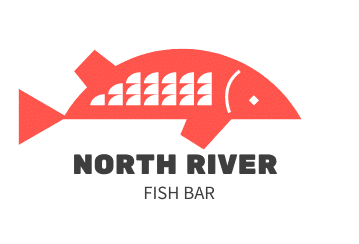Going on a holiday should be a time of relaxation and enjoyment. However, for those who have specific dietary needs like coeliac disease, planning a holiday cruise can be a challenging task. The concern that you won’t find suitable food to eat on board is a common issue, especially when you’re on a diet that is gluten-free. But the good news is, most of the leading cruise lines in the UK now provide an array of options to cater to various dietary needs. This article will guide you on how you can ensure your gluten-free diet is well taken care of during your cruise holiday.
Understanding the Cruise Lines’ Dietary Policies
The first step in ensuring your gluten-free dietary needs are catered to is to understand the dietary policies of various cruise lines. Most cruise companies in the UK recognise the increased demand for special diet requirements from their customers. Hence, they make an effort to cater for gluten-free meals.
Dans le meme genre : How do tide schedules affect embarkation times on UK cruises?
Before booking, take the time to check the dietary policy statement on the cruise lines’ website. This will give you an idea of what to expect in terms of the availability of gluten-free meals. Don’t hesitate to call the customer service for clarifications or further information.
Many cruise lines allow you to indicate your dietary preferences at the time of booking. Others may require you to inform them at least 45-90 days before departure. It’s important to communicate your needs well in advance to ensure the ship’s kitchen is well-prepared to accommodate your gluten-free meals throughout your holiday.
A lire également : What special events do UK cruises offer for anniversaries or celebrations?
Checking with the Cruise’s Restaurants and Buffets
The main restaurants and buffets on a cruise ship are usually where you’ll eat most of your meals. Hence, ensuring they can cater to your gluten-free diet is crucial.
Once on board, take the time to speak with the restaurant managers or chefs. They will be able to guide you on which dishes are gluten-free or can be modified to meet your dietary requirements. Some cruisers provide separate menus for passengers with dietary restrictions, while others label their meals accordingly in the buffet area.
On the first day of your cruise, make an effort to develop a relationship with the waitstaff. They will be more familiar with your dietary needs and will be able to assist you, ensuring that what you’re served is, indeed, gluten-free.
Exploring Specialty Restaurants and Room Service
Aside from the main restaurants and buffets, you’ll find specialty restaurants on a cruise ship that might cater to specific diets. You should also check if these dining venues can cater to your gluten-free diet.
Although specialty restaurants often require an additional fee, they might provide a wider variety of gluten-free options compared to the main dining areas. Likewise, don’t forget to explore the room service menu. You might be surprised to discover more gluten-free choices.
Remember, communication is key. Always check with the restaurant staff to ensure the food you’re ordering is gluten-free.
Packing Gluten-Free Snacks and Supplies
While cruise lines are becoming more accommodating to passengers with dietary restrictions, it’s always a good idea to come prepared. Consider packing some gluten-free snacks and supplies as a backup.
You’ll find this particularly helpful during shore excursions where gluten-free options might be limited. Energy bars, gluten-free crackers, and cookies are some of the convenient snacks to bring along. Be sure to check with your cruise lines beforehand if they allow passengers to bring their own food on board.
Travelling with a Cruise Line that Specializes in Dietary Needs
For an even more worry-free cruise experience, consider travelling with a cruise line that specialises in catering to passengers with dietary needs.
Some UK cruises are well-known for their attention to detail when it comes to dietary restrictions, offering an extensive range of gluten-free options in their dining venues. By choosing a cruise line that prioritises dietary needs, you can enjoy a stress-free cruise holiday knowing that your gluten-free diet is well taken care of.
Remember, the goal is to enjoy your holiday. With careful planning and clear communication, you can have a memorable cruise experience without worrying about your gluten-free diet.
Avoiding Cross Contamination on a Cruise Ship
One key concern for those following a gluten-free diet is avoiding cross-contamination. This happens when gluten-free foods come into contact with foods that contain gluten. It’s important to remember this aspect, especially when you’re travelling on a cruise ship where food is prepared in large quantities.
When you are in the dining room or buffet area, be vigilant about how the food is served. There might be instances where serving utensils are exchanged between dishes, leading to possible cross-contamination. Speak with the restaurant manager about your concerns, and they can inform you about the measures taken to prevent cross-contamination.
Some cruise lines, such as Royal Caribbean and Princess Cruises, have stringent protocols to avoid cross-contamination. They ensure separate preparation areas for gluten-free meals and train their staff in safe food handling practices.
Also, don’t forget to communicate your concerns about cross-contamination when ordering room service or dining at specialty restaurants. Make sure the staff understands why it’s essential for your food not to come into contact with any gluten-containing ingredients.
Enjoying Gluten-Free Beer and Other Beverages
Enjoying a cool drink while watching the sunset from a cruise ship deck is a blissful experience. However, if you have coeliac disease, you may worry about the gluten content in certain alcoholic beverages.
The good news is that many cruise lines now offer gluten-free beer and other alcoholic options. For example, P&O Cruises provide a variety of gluten-free beers and ciders on their menu. However, it’s vital to confirm whether the drinks are entirely gluten-free or have been processed to remove gluten, as the latter may still contain traces that can cause a reaction.
Non-alcoholic beverages, such as sodas, juices, and most wines, are generally gluten-free. But, when in doubt, always ask the staff. They can provide a list of gluten-free beverages available on board.
Conclusion: Ensuring a Stress-Free Cruise Experience with a Gluten-Free Diet
Embarking on a cruise holiday while catering to a gluten-free diet might seem challenging at first. However, with careful planning, effective communication, and a bit of research, you can ensure your dietary needs are met without compromising your cruise experience.
Remember to check the dietary policies of various cruise lines and speak to the restaurant managers and chefs once on board. Explore the offerings at specialty restaurants and room service, and don’t forget to ask about their measures to prevent cross-contamination.
Pack some gluten-free snacks for emergencies, particularly during shore excursions, and consider choosing a cruise line that specialises in catering to passengers with dietary needs.
Cruise lines have come a long way over the years in accommodating dietary requirements, and you’ll find that most are well equipped to handle gluten-free requests. After all, their ultimate goal is to ensure that all passengers have a memorable and enjoyable cruise experience.
So, with the right approach and preparation, your gluten-free cruise holiday can be just as relaxing, enjoyable, and delicious as any other. Bon voyage!










